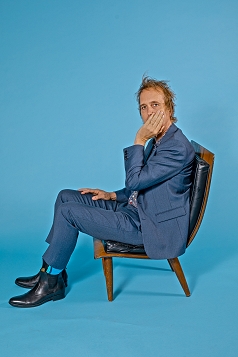Interviewer: Chuck, we need some quotes.
Chuck Prophet: I thought we could dig up someone else’s quotes. Or maybe make up something somebody might’ve said, like one of those movie blurbs you see in the ads: “I laughed, I cried, I stood up and cheered. Chuck Prophet—take a bow!”
Interviewer: Something you actually said might work better.
Chuck Prophet: How about, ” ‘When I listen to Chuck Prophet I can’t help but want to sing along.’—Chuck Prophet.” I think I said that once. Nobody was around or anything, and it wasn’t a real high point in my life, self-esteem-wise, but I’m pretty sure I did say it.
Whatever he did or didn’t say, the man does have a point. To crush metaphors beyond repair, Prophet makes tunes that taste good to the human ear. And his new album, Feast Of Hearts, is a throwback breakthrough—a stylistic melting pot of rock ‘n’ roll that covers new musical terrain while keeping a sharp eye in the rearview mirror for forgotten treasure disguised as roadkill.
“It’s not what you put in the pot, but what’s left after you bring it to a boil,” is how Prophet sums up his “method,” as it were. “Besides, I’m not one of those rock ‘n’ roll librarians. I didn’t learn the songs correctly in the first place. Don’t get me wrong, I learned a lot of songs, but I kept throwing in new chords until I just decided it was time to write my own.”
Tune after tune on Feast Of Hearts spins tales about “late nights, early afternoons and public access prime time,” according to Prophet, who doesn’t wear a watch and tells time by cafe clocks. The song settings range from Manhattan’s bohemian St. Mark’s Place to rough East L.A., from bedrooms to barrooms to park benches, with the moods swinging from the extreme to the droll. In short, all the little things in life that make up the big things. “On this record I wanted to bring my world—sad but true, let the chips fall, all those cliches and more—into the songs. To try not to whine and not to brag, to avoid the temptation to cheat on myself.”
Completed last winter at The Clubhouse, a storefront studio in North Hollywood, Feast Of Hearts features, in addition to singing partner Stephanie Finch, Cracker vets Davey Faragher (bass) and Michael Urbano (drums). Steve Berlin of Blasters/Los Lobos fame sat in the producer’s chair.
“I had already written and co-written about 40 songs over the past year, booking lots of little demo sessions along the way, so I had a blueprint by the time we went in. Steve suggested we record at first as a trio, then as things progressed we brought in Stephanie and some friends, like Greg Leisz on guitar and Phil Parlapiano on accordian. So basically we kept to a core group of difficult, talented, intense people—we were able to stick to the music and reveal truly awful things about our personalities. “And Steve was absolutely tireless. He’ll go out and look around in the nooks and crannies. In the dark. With a flashlight. During a storm. Steve works out of one side of his brain. Which side, I can’t say—it’s the opposite of what I use! But he works hard and long. Even if he does carry a computer around in his fanny pack.”
Interviewer: They’ll want to know about the songs.
Prophet: I’ll leave that to the reviewers. That’s their job, right? Writing a song is one thing for me, playing is another, and singing is still another. But talking about something as mysterious and ridiculous as chords and rhymes, man, that’s one step beyond.
Interviewer: We’re trying to be helpful here.
Prophet: Ah, writing, okay, well, all I do is lock myself in a room and not come out until I’ve inflicted some melodic monstrosity on the world. Sometimes I go in alone. Sometimes I have to drag somebody in there with me. On this album I wrote with one guy nobody’s heard of yet, he goes by Klipschutz, I think that’s Lithuanian. And I wrote with Jules Shear, whose name most people who follow music will know. In both cases, I think we came up with some good stuff at the end of the day. What do you think?
Chuck Prophet grew up in the early ‘60s in Whittier, California, a burg notable for producing an American President, even if it was Richard Nixon. “In Southern California in the ‘70,” recalls Prophet, “there was music everywhere. And everybody played guitar—shake a tree and five guitar players would fall out! For me, playing guitar was some kind of subculture, not a ‘musical thing.’ You put your fingers here, you put your fingers there. Better than doing the hokey-pokey! No, it was like there were all these secret codes, and once you cracked them they actually resembled songs you heard on the radio.”
Ronald Reagan wound up in the White House and Prophet wound up in San Francisco the same year, going to college and “majoring in financial aid.” He played in a rapid-fire succession of punk-inspired bands, leading up to an opening slot for Green On Red in early ‘84 which in turn led to his joining the L.A. rootsrock combo. “I was drafted,” he claims.
Either way, for the rest of the decade he was a core member of the group, co-writing and guitar-slinging along with vocalist Dan Stuart, on what “seemed like one long barnstorming tour here and throughout Europe,” as Prophet remembers it.
“We made eight albums, somehow. Then Danny and I went on permanent strike. What did I learn? How to drink lying down and how to sleep sitting up.” Green On Red earned its 15 minutes of fame, with time on the clock to spare, particularly in Europe. Along the way they worked with seasoned players like Dan Penn, Spooner Oldham, Tony Joe White, Bernie Leadon, Rene Coman and Rainer. Album producers included such rock ‘n’ roll lifers as Glyn Johns, Jim Dickinson and Al Kooper. “At times I felt that I was getting close to things that I considered ‘the source.’ says Prophet. “And I got to watch how other people work. I know it’s hard to believe, but it is work. Well, sort of.”
Prophet found himself with time to kill during S.F. pit stops between G.O.R. tours and records. So along with a cast of locals such as Finch, Mark Eitzel, Barbara Manning and Bone Cootes, he gravitated to The Albion, a rundown drinking hole “in the neighborhood. They had a back room and you could write a song on Thursday and play it to 40 people on Friday to see how bad it leaked.”
Out of these “invisible weekend no-profile headlining slots” came the songs for his Prophet’s first solo record, Brother Aldo, recorded for $800. Critical response was positive, to say the least, with music industry tipsheet CMJ New Music Report in particular rightly noting “the same bottom-of-the-bottle gusto that imbued such classics as Pleased To Meet Me, Beggars Banquet or I Want To See The Bright Lights Tonight.”
In 1992, Prophet turned up at Austin’s annual South By Southwest Music Fest, where he gave a standout live performance. (The Austin Chronicle described it as the “hands-down favorite” SXSW showcase, with the quartet coming off “like a full-fledged country-rock orchestra” and Prophet adding “greasy acoustic blues licks, a playful, soulful persona and that distinctive voice.”) He then set to work on his next solo album, Balinese Dancer, with a cast that included now-permanent co-conspirator Finch on harmonies and assorted musical shadings.
“I wanted to make a record that nobody would be able to tell when it was recorded. I’m a great fan of—and I don’t mean to put myself next to these people—albums like The Basement Tapes, Sister Lovers, or Skip Spence’s Oar. What I gathered from those records was that those were records that couldn’t have been made if anybody was looking. See, in the process of recording ‘professionally’ so many things get diluted that it’s a minor miracle to get real spirit down on tape. Not energy. Energy is easy. But to capture spirit, that’s like catching lightning bugs in a jar.”
Once again the critics penned their kudos. Guitar Player called him a “storyteller of inward journeys and outward adventures” and a “masterful player who incoporates threads of country, folk, roots rock and blues.” And Creem gushed over his “stomping acoustic slide work straddled by gruff, barking blues leads and rounded out by soft Hammond organ punctuation,” further singling out Prophet and Finch’s vocals as “some of the finest duets this side of Richard and Linda Thompson’s definitive album Shoot Out The Lights.”
Which brings us back to the present, and back to Feast Of Hearts. Prophet: “I like listening to music that transports me, like a movie that transports you, into your own head and through the looking glass. Like when I was eight years old and bought my first record. Nowadays you’ve got so many styles and too much marketing, and there’s another hyphen every time you rest your eyes. Some of the best stuff gets lost in the static between the stations. I guess what I try to do is dip my bucket down and see if I can drink what I pull back up.
“And I’m pretty lucky to have songs that are living, breathing creatures. What gets all my juices moving around is taking them out of the house and onto the road so I can wipe the smiles off their faces. There’s nothing worse than a song that sits up on the shelf and grins. ‘Cause pretty soon they all start to complain, anyway I’d like to get out and play for a long time, until every last one of them learns how to entertain itself.”
Interviewer: So you’ll be touring all through ‘95. And after that? I heard a rumor of yet another record…?
Chuck Prophet: Well, I started that rumor. The working title is The Many Moods Of Chuck Prophet. It’s gonna have songs like “Roll Away The Stone” by Mott The Hoople, “Cryin’” by J.J. Cale, Dylan’s “She’s Your Lover Now,” “Flockin’ With You” from Ike Turner, maybe Randy Newman’s “Suzanne” and War’s “Cisco Kid” too.
Interviewer: All covers. Sounds cool. When Dylan did it last year it caught a lot of people off guard and…
Chuck Prophet: No, no, I mean the actual original versions, you know, by the original artists. I figure the sleeve can be
me sitting back in my La-Z-Boy with my eyes shut, listening to the stereo. Maybe get Lester Bangs to do the liner notes. If I can afford him.
Interviewer: Ah. Chuck. Lester Bangs passed on. He’s been dead awhile now.
Chuck Prophet: Oh man, that’s too bad. I guess I knew he hadn’t been too active, but… I gotta keep up better. Mmm… have you ever done liner notes?
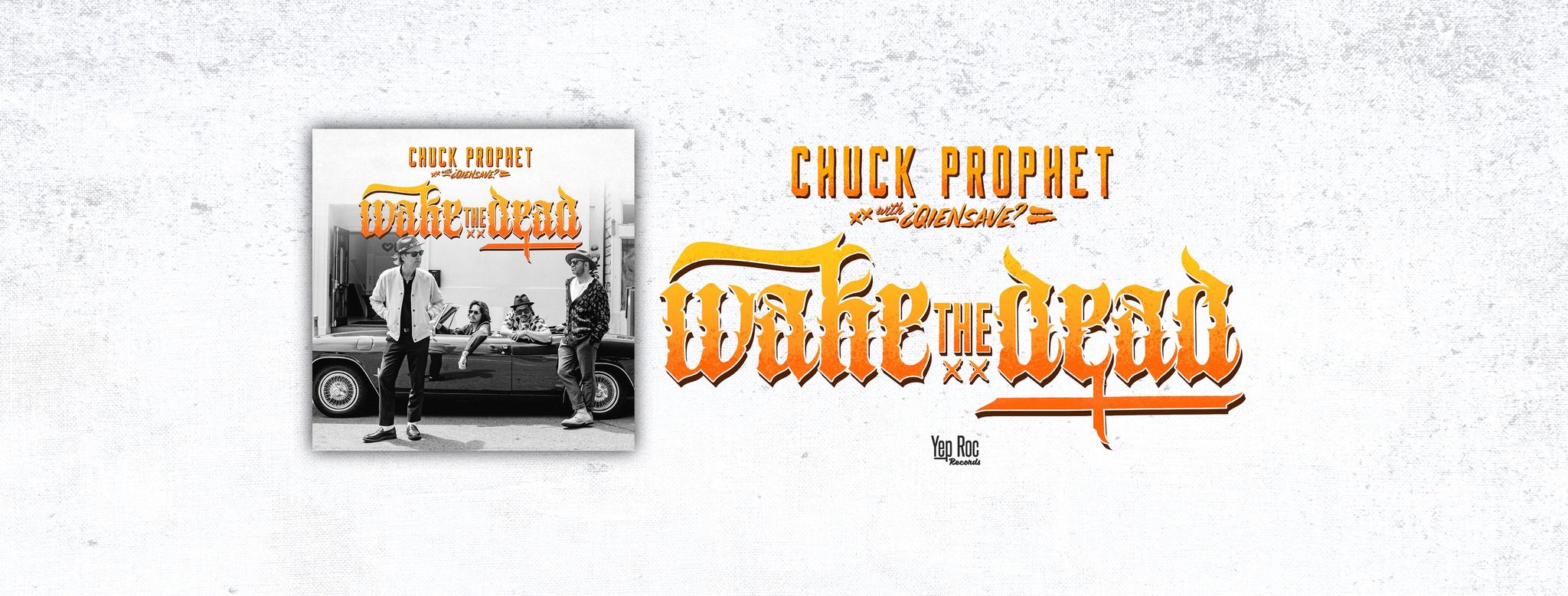

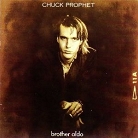
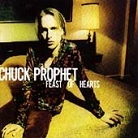
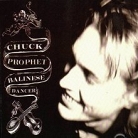



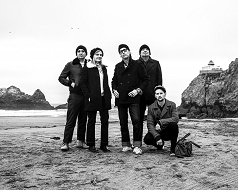
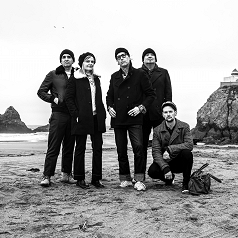
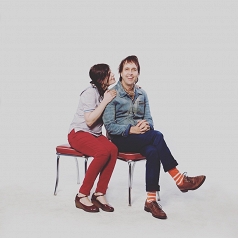
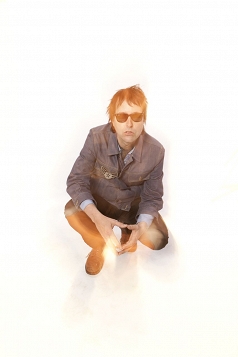

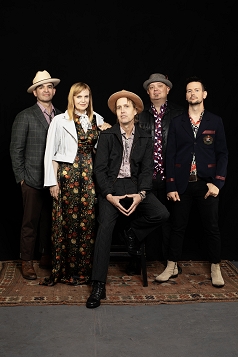
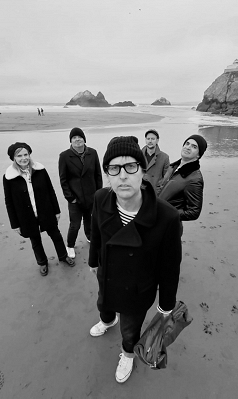
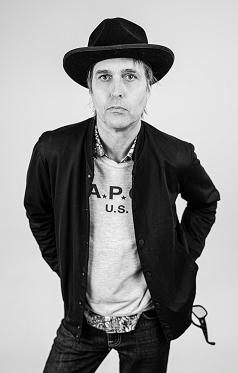
3_238_159auto_s_c1.jpeg)
